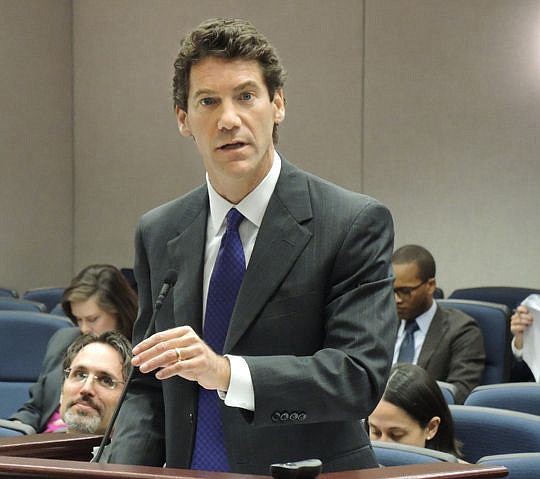
After a fierce debate about attorney fees, a House panel last week moved forward with a proposal that would make key changes in the workers’ compensation insurance system.
Lawmakers are grappling with the issue after regulators last year approved a 14.5% insurance rate increase that started hitting businesses in December. That increase stemmed primarily from the Florida Supreme Court striking down two parts of the workers’ compensation system, including strict limits on fees paid to attorneys for injured workers.
The House Insurance & Banking Subcommittee approved a 34-page bill that deals with a series of issues, such as the duration of benefits for some injured workers and the amounts of money hospitals and ambulatory surgical centers get paid to provide outpatient care to workers.
But the debate focused on attorney fees, which business groups blame for driving up costs in the workers’ compensation system. The bill (PCB IBS 17-01) would allow judges of compensation claims to approve fees up to $250 an hour for workers’ attorneys.
Subcommittee Chairman Danny Burgess, a Zephyrhills Republican who is shepherding the bill, said the proposal is aimed at complying with constitutional requirements, including a Supreme Court ruling in April that said the state’s fee limits were unconstitutional.
The Supreme Court ruling involved an attorney being awarded the equivalent of $1.53 an hour in successfully pursuing a claim for benefits for a worker injured in Miami.
But many of the state’s most influential business groups, including the Florida Chamber of Commerce, Associated Industries of Florida, the Florida Retail Federation and the National Federation of Independent Business, are fighting against the fee proposal in the House bill.
That led to Rep. Jay Fant, R-Jacksonville, proposing an amendment Tuesday that would have eliminated the responsibility of insurers or businesses to pay the attorney fees of workers who prevail in disputes about workers’ compensation benefits. Fant’s proposal would have left it to each side in such a dispute to pay their own attorney fees.
Fant said the Supreme Court ruling had an “atomic bomb effect” that lawmakers are having to address.
“There’s a sense of panic in the business community that this bill as drafted doesn’t address this adequately,” Fant said.
But critics of Fant’s proposal questioned its constitutionality and whether it would prevent injured workers from having access to the court system and being able to challenge the decisions of insurers. Rep. Sean Shaw, D-Tampa, said state laws include attorney-fee awards because cases involve the “little guy against the big guy.”
“Fees attach when you mess up,” said Shaw, a former state insurance consumer advocate. “Don’t mess up, and you’ll be all right.”
After a lengthy debate, the committee voted 8-7 to reject the Fant amendment and later went on to approve the bill.